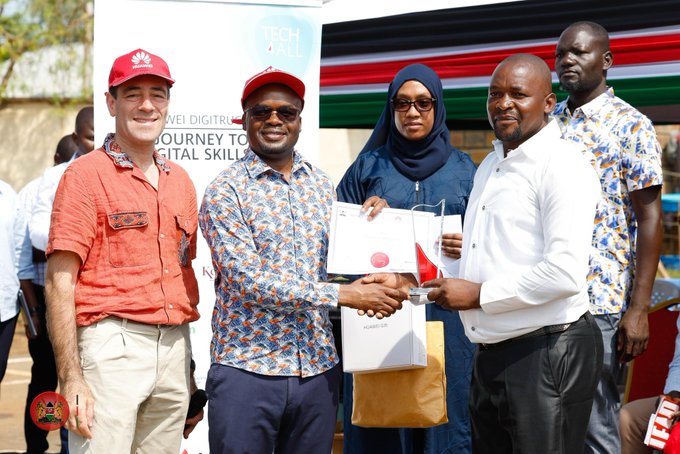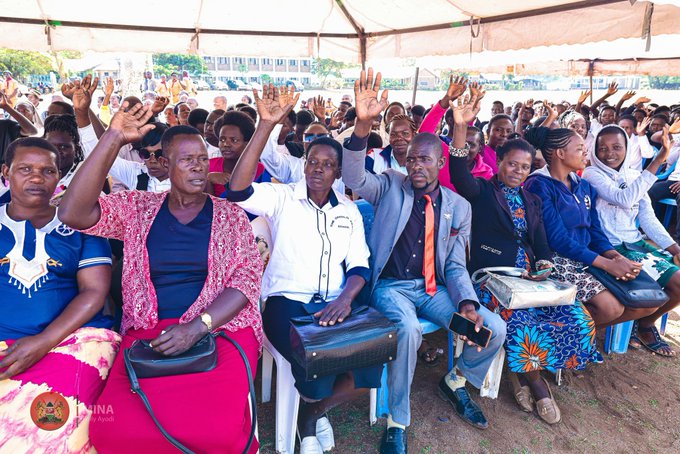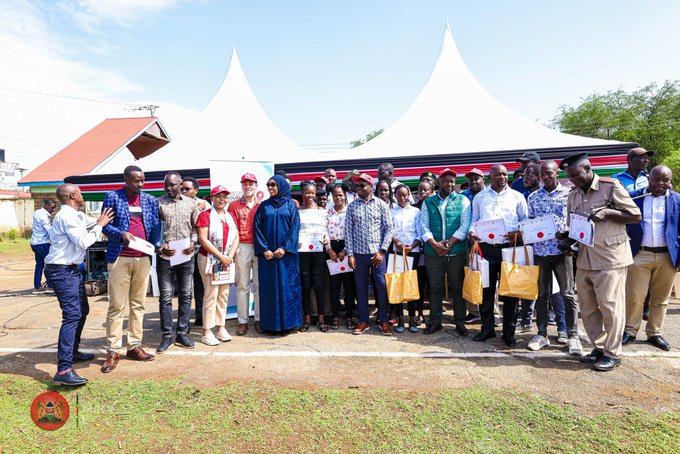HOMA BAY, Kenya –Nearly 300 young people in Homa Bay have graduated from the Huawei DigiTruck program, gaining essential digital skills to unlock online job opportunities, enhance businesses, and navigate the digital world safely.
The six-week training, hosted at Oriwo Boys High School, saw 290 trainees—143 women and 147 men—receive certificates in digital literacy, entrepreneurship, and online safety.
The initiative, led by Huawei in partnership with the government and local stakeholders, aims to bridge the digital divide by bringing tech education to underserved communities.
Since its launch in 2019, the DigiTruck program has trained over 6,000 young people across 36 counties, including Nairobi, Kiambu, Uasin Gishu, and Marsabit.
In 2024 alone, 1,648 individuals—906 of them women—benefited from the program, highlighting its commitment to gender inclusivity and digital equity.
“Digital skills are no longer a luxury; they are a necessity,” said Principal Secretary Dr. Raymond Omollo, who presided over the graduation ceremony. “Whether you’re starting an online business or working remotely, digital literacy is key to unlocking new opportunities.”
The trainees received instruction in computer literacy, digital marketing, financial literacy, and entrepreneurship.
Attended the Huawei Digitruck Graduation Ceremony at Oriwo Boys High School, Homa Bay County, where 290 trainees were awarded certificates of completion.Since 2019, this initiative has trained over 6,030 youth across 36 counties, equipping them with essential skills in computer…
Online safety was a key focus, equipping them with the knowledge to protect their personal data, recognize scams, and navigate the internet responsibly.
Adam Lane, Huawei’s Government Affairs and Policy Director, emphasized the company’s broader commitment to digital training.
“Beyond our university and TVET training programs, the DigiTruck ensures that even those outside formal education, especially in rural areas, gain digital skills. I’m proud that we’ve achieved an equal gender split among trainees—digital skills are for everyone.”
One of the graduates, Damada Akinyi, shared how the training had already transformed her prospects.
“I’ve learned graphic design and presentation skills, which have helped me secure design jobs and earn money while preparing for university,” she said.
The program also included an innovation competition, challenging trainees to develop digital solutions for local challenges.
Some of the winning ideas aimed to enhance healthcare service delivery, support quarry workers, and raise awareness about online safety and cybersecurity.
National Youth Council CEO Gloria Wawira encouraged graduates to leverage their new skills.
“Take advantage of initiatives like Ajira Digital to build careers and develop your talents,” she urged.
Dr. Omollo reaffirmed the government’s commitment to expanding digital education.
“This is just the beginning. By investing in digital skills, we are empowering young people to drive economic growth and innovation,” he said.







